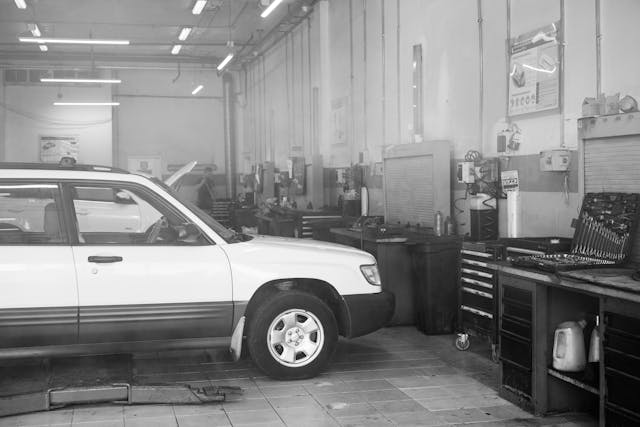Introduction:
For many drivers, auto maintenance may easily become an expensive burden, particularly when unforeseen problems occur. However, you can maintain your automobile in excellent shape and save money on repairs by being proactive with maintenance and careful planning. This post will provide professional advice that drivers on a tight budget may use to reduce the cost of auto repairs.
Put Money Towards Preventive Maintenance:
Investing in preventative maintenance is one of the best methods to reduce the cost of auto repairs. Oil changes, fluid checks, and tire rotations are examples of regularly planned maintenance that may help find any problems early on and fix them before they become more expensive repairs. You can prolong the life of your car’s components and save a lot of money on future repairs by maintaining your car proactively.
Do It Yourself Simple Repairs and Upkeep:
With the correct equipment and supplies, many simple maintenance jobs may be completed at home, even if certain repairs would need specialized knowledge from a professional. Over time, you may save a lot of money on labor by learning how to change your oil, update your air filters, and check your brake pads. There are a ton of DIY manuals, instructional videos, and online tutorials available to assist you comfortably handle routine auto maintenance jobs.
Compare Prices on Parts and Services:
Never accept the first estimate you are given for auto repairs. Spend some time researching and contrasting costs from many local car shops, dealerships, and mechanics. Furthermore, take into account purchasing components from reliable internet sellers or salvage yards, where you may be able to get high-quality used parts for a much lower price than brand-new ones. Being a wise consumer can help you drastically lower the total cost of repairs.

Remain Educated and Informed:
When it comes to auto repairs, information is power. Spend some time learning about the make and model of your car, typical problems, and suggested maintenance intervals. You may identify issues early and save needless repairs by being aware of possible warning signals and knowing how your automobile operates. Read your owner’s handbook, participate in online groups and forums, and consult with knowledgeable technicians or drivers to stay educated.
Sort Repairs According to Urgency:
When confronted with many repair requirements, order them according to safety and urgency. In order to protect your safety while driving, take urgent action to fix serious faults such braking or suspension difficulties. You may usually put off or take care of cosmetic problems or non-essential repairs gradually as your budget permits. Prioritizing the most important issues can help you use your resources wisely and cut down on wasteful spending.
Examine Other Options for Transportation:
Sometimes it makes more financial sense to look into other modes of transportation rather than having a car repaired right away. If the cost of repairs is more than the car’s worth or you are under a tight budget, you may choose to temporarily use ridesharing, carpooling, or public transportation. This may give you some time while you save money for repairs or look into longer-term, more cost-effective options, like buying a trustworthy secondhand automobile.
Haggle and Request Discounts:
When it comes to negotiating repair charges, don’t be scared to bargain with auto shops or technicians. Find out whether they provide discounts for referrals, loyalty plans, or cash payments. Certain stores could be open to matching rivals’ prices or providing exclusive deals for certain services. Being a regular client and developing a strong relationship with your technician may also result in special attention and even cost savings on subsequent repairs.
Examine these resources for do-it-yourself (DIY) repairs:
With so many instructional materials and internet tools accessible today, do-it-yourself enthusiasts may undertake numerous auto repairs. Think about if you can do the repair yourself with the aid of internet tutorials, repair manuals, or forums before rushing to the technician. DIY repairs may save you a lot of money on labor expenditures for anything from simple electrical problems to brake pad replacements. Just be careful to honestly evaluate your abilities and limits, and for intricate or crucial safety fixes, get expert assistance.

Maintain Up-to-Date Cleaning and Maintenance:
Even while it may not seem like it has anything to do with repairs, keeping your vehicle clean and well-maintained might help you avoid future, expensive damage. While cleaning the inside keeps dirt and debris from building up and causing premature wear on surfaces and upholstery, regularly washing and waxing the outside helps preserve the paint from rusting and corrosion. Furthermore, you may save possible repair costs by keeping coolant and brake fluid levels properly. This will stop overheating and braking failure.
Enroll in Workshops or Courses for Auto Maintenance:
If you’d want to further your knowledge and proficiency in auto repair and maintenance, you may choose to sign up for some community college or vocational school classes or local seminars. These courses frequently include subjects like electrical diagnostics, brake repair, and basic engine maintenance. They provide you practical information and hands-on experience that will enable you to confidently take on more difficult repairs. Putting money into education now may save a lot of money on future repairs and give you the knowledge and skills you need to eventually take better care of your automobile.
Check the History of Maintenance for Your Car:
Maintaining a thorough log of your vehicle’s repair history can make it easier for you to plan routine maintenance and inspections and keep track of them. You can get a comprehensive picture of your car’s maintenance requirements and costs over time by keeping track of things like tire rotations, oil changes, fluid flushes, and repairs. When trading in or selling your car, having a thorough maintenance history on file can make it more appealing to prospective purchasers and enhance its resale value.
Take Initiative Regarding Warranty Coverage and Recalls:
Keep up with recalls and warranty coverage for your car to make sure you don’t have to pay for any repairs or replacements that are deemed necessary. Manufacturers periodically issue recalls for flaws in safety or problems that might impair the functionality of certain parts. In a similar vein, benefit from warranty coverage for replacement or repair of items that are covered by the warranty on your car. You can save out-of-pocket costs and guarantee your automobile stays trustworthy and secure by taking care of these problems as soon as they arise.
In summary:
Proactive maintenance, resourcefulness, and a willingness to learn and do repairs yourself when feasible are all necessary to save money on auto repairs. You may further lower repair expenses, extend the life of your automobile, and feel good about being a wise and frugal driver by using these extra techniques and implementing them into your usual car maintenance regimen. Keep in mind that being proactive with maintenance and repairs not only helps you save money over time, but it also benefits your car’s long-term dependability and health.
How can I tell if I can do a repair on my own?
Evaluate the repair’s intricacy, your comfort level, and your skill level. Examine internet guides, maintenance guides, and discussion boards to determine the degree of difficulty. As you acquire confidence and skill, work your way up to more difficult repairs starting with smaller, easier ones.
Which frequent auto repairs can I do myself to save money?
Do-it-yourself projects that are rather simple and may save you money on labor charges include replacing spark plugs, changing air and oil filters, replacing brake pads, and repairing small electrical problems.
Where can I get trustworthy resources for do-it-yourself repairs?
Search for reliable internet guides, educational films, and discussion boards devoted to auto repair and upkeep. Online resources like YouTube, car forums, and manufacturer-specific webpages often provide comprehensive how-to tutorials and troubleshooting advice.
How frequently should my automobile be maintained and cleaned in order to avoid expensive repairs?
It is important to keep your automobile clean on a regular basis to avoid damaging it with dirt, filth, and caustic materials. To maintain your automobile in optimal condition, follow the manufacturer’s suggested maintenance plan for jobs like tire rotations, fluid checks, and oil changes.
What are the advantages of enrolling in workshops or courses for auto maintenance?
Workshops and seminars on auto maintenance provide you with the practical information and hands-on experience you need to effectively handle a variety of repairs. You may save money on labor expenses and eventually take better care of your automobile by making an upfront educational investment.
How can I keep up to date on my car’s warranty coverage and recalls?
To get notices regarding recalls, make sure the car manufacturer or dealership has your most recent contact information. For information about recalls, visit the National Highway Traffic Safety Administration (NHTSA) website often. In a similar vein, see what repairs or replacements are covered under your car’s warranty and make use of any available perks.
What should I do if I can’t fix something that has to be fixed?
Never be afraid to ask for expert assistance if you’re not sure how to handle a repair or run into unforeseen difficulties. For an evaluation and quote, speak with a reputable vehicle repair shop or technician. Even while doing repairs yourself might save you money, safety and well-done work should always come first.
How can I set aside money for unforeseen auto repairs?
To prepare for unforeseen costs, think about allocating a percentage of your monthly budget for auto maintenance and repairs. In addition, look into alternatives like roadside assistance programs or extended warranties, which provide security against unforeseen repairs or breakdowns as well as financial protection.
Exist any community-based or government initiatives that help low-income people with auto repairs?
Certain governmental bodies, charitable institutions, and neighborhood initiatives provide low-income people and families with auto repair help. Look into neighborhood resources, including philanthropic groups or community action agencies, to find out about eligibility and services that are offered there.
What warning signs should one look out for in regards to frauds involving auto repairs?
Auto shops or mechanics who urge you into needless repairs, give you estimates that are unclear or inconsistent, or won’t show you the damaged components should be avoided. In the event that you have questions about the diagnosis or suggested repairs, get written estimates and seek a second opinion. Transparency and client satisfaction are priorities for trustworthy experts.